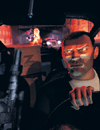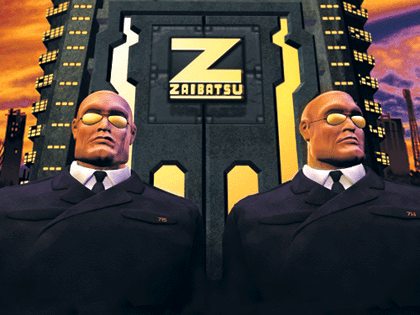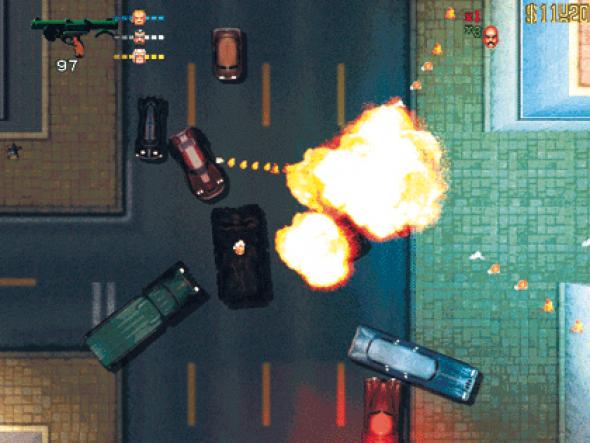Giving History the Gaussian Blur
Tom McCarthy on the recent Converging Stories conference at the ICA
 “Yes, oh dear yes, a novel has to tell a story,” wrote the gifted but hopelessly limp-dicked E. M. Forster. But does it really? What story is being told by Finnegans Wake? By Tristram Shandy? Isn't Don Quixote more about a refusal of story, lampooning the very notion that a heroic event-landscape can be smoothly traversed by parading the farcical pratfalls of the protagonist who tries to do so, interrupting itself, undercutting its own authenticity time and again? Narrative was always present in the novel, but the text's relation to it has been, from the outset, complicated, plural, problematic.
“Yes, oh dear yes, a novel has to tell a story,” wrote the gifted but hopelessly limp-dicked E. M. Forster. But does it really? What story is being told by Finnegans Wake? By Tristram Shandy? Isn't Don Quixote more about a refusal of story, lampooning the very notion that a heroic event-landscape can be smoothly traversed by parading the farcical pratfalls of the protagonist who tries to do so, interrupting itself, undercutting its own authenticity time and again? Narrative was always present in the novel, but the text's relation to it has been, from the outset, complicated, plural, problematic.
A failure to appreciate this basic fact marred the ICA's Converging Stories conference, convened in November to discuss the ways in which new technologies have impacted storytelling in the fields of not only literature but also film and gaming. The event's supposed highlight was the embarassing spectacle of author Neal Stephenson claiming that postmodern culture has introduced an element of nomadism into narrative (hadn't he heard of eighteenth century picaresque?), while his contemporary Jeff Noon presented a 'new' technique of streaming other texts together to produce fresh, hybrid ones, 'made possible' by the latest sound recording software (something Burroughs was doing long before Protools was around – not to mention Tzara, Eliot or, for that matter, Skelton). A similar myopia was demonstrated by Andreas Lange, Head of Berlin's Computer Games Museum, who informed the audience that gaming is, by its very nature, teleological: we play games in order to achieve a goal, to win. Well, no. We play in order to inhabit certain environments, to live and re-live stylised, textured moments, be these in Tomb Raider II or with a cup-and-ball- on-string. Are those kids in Breughel paintings saying to themselves: “Wicked! I've caught it. Now I can stop”? I think not.
The fault here lay with the organisers, in asking the participants to juggle categories they weren't well-informed enough to manage. This was a pity: technology has affected literature, and film, and gaming, in very interesting ways, releasing new paradigms, effecting strange cross-pollinations. When the speakers stuck to what they knew about they really shone, Lange, for example, demonstrating how computer games import visual glitches such as sunglare from the cinema. The best talks took the form of 'progress reports'. The Dutch new media duo Femke Wolting and Bruno Felix showed how the proliferation of affordable high-quality equipment throws wide open the question of what qualifies as content: my holiday films can be edited and distributed just as easily as a carefully-wrought small budget movie. They went on to wonder whether increased media access will force broadcasting companies to adopt more democratic, bottom-up models for story generation, allowing viewers input into the plotline of, say, Eastenders.

Demis Hassabis, Managing Director of Elixir Studios, described the multi-user VRML gaming zone his company are attempting to configure in such a way that, while players can modify the space around them by arranging objects in elaborate formations, fighting with other players is impossible. Ingeniously, players bent on mischief have taken to running up to other players' avatars, building a wall around them and then hoisting a virtual piano by a pulley till it's just above their head, then letting go. Nee-oooow Splat! It's Road Runner all over again. Come to think of it, that's more or less how Barabas meets his end in Marlowe's The Jew of Malta. Story-wise, what goes round comes round.
Tom McCarthy<tom AT metamute.com>
Mute Books Orders
For Mute Books distribution contact Anagram Books
contact@anagrambooks.com
For online purchases visit anagrambooks.com








